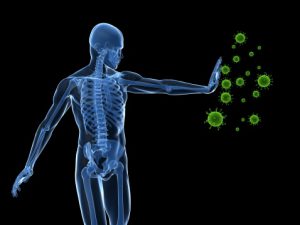October is National Dental Hygiene Month. Flushing Hospital wants you to think beyond your teeth and gums and learn how good oral care has some surprising benefits for your overall health.
Here are five surprising reasons why oral care matters for a healthy body.
- Healthy gums for a healthier heart
One health concern may lead to another. Studies have linked oral inflammatory disease with elevated heart disease risk. Gum disease from extended bacterial exposure can lead to cardiovascular disease as it may increase the inflammation level throughout the body. Your dentist should ask about your heart health and family history of heart disease.
- A healthy mouth could mean a healthier pregnancy
Regular checkups with a dentist and hygienist become even more important during pregnancy. Women who are pregnant should take extra care to keep their teeth at their best, not just for themselves, but for their babies too. Pregnant women with poor oral health may be at higher risk of delivering pre-term, low birth weight babies than pregnant women with good oral health.
- There’s a link between gum disease and diabetes
People with diabetes are more prone to gum disease. However, new studies suggest that serious gum disease may actually contribute to diabetes as it affects blood glucose control. This two-way link is a wake-up call to take care of your teeth, especially since the incidence of diabetes is rising.
- Early screening for Oral Cancer
As part of regular examinations, dentists should check all soft tissues to ensure they are healthy. All dentists are trained to do a cancer screening as part of ongoing dental checkups, by inspecting the gums, tongue, lips and cheeks for anything suspicious or any unusual changes. A precancerous lesion can begin as a small white or dark red patch that may not be causing you any noticeable symptoms. Keep in mind that only about one-half of all patients diagnosed with oral cancer survive more than five years, so detecting early signs of the disease is crucial.
- Trying to lose weight? Brush your teeth!
Brushing your teeth signals you have finished eating and may help with portion control. Use this trick to your advantage – have a healthy meal and then, before you are tempted to overeat or indulge in sweet desserts, go and brush your teeth. This will tell your brain that mealtime is over. While brushing cleans your teeth and freshens your breath.
All content of this newsletter is intended for general information purposes only and is not intended or implied to be a substitute for professional medical advice, diagnosis or treatment. Please consult a medical professional before adopting any of the suggestions on this page. You must never disregard professional medical advice or delay seeking medical treatment based upon any content of this newsletter. PROMPTLY CONSULT YOUR PHYSICIAN OR CALL 911 IF YOU BELIEVE YOU HAVE A MEDICAL EMERGENCY.




